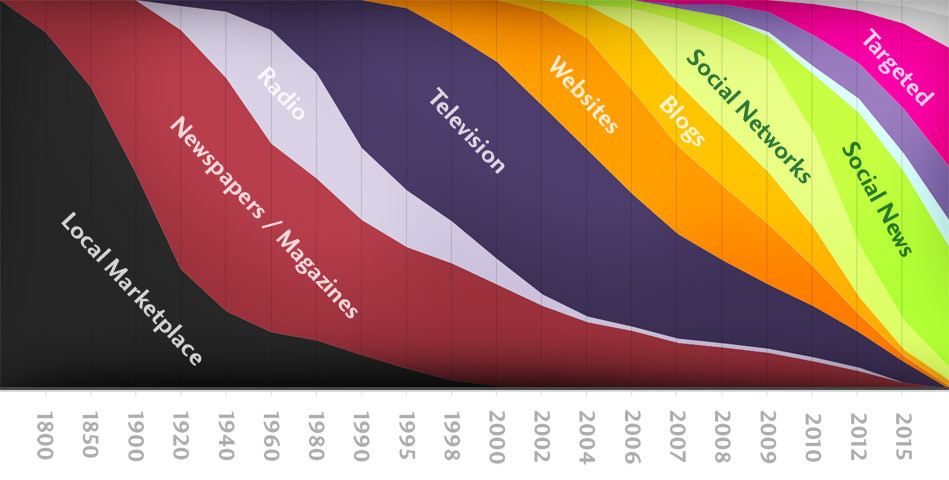(An abridgment of a former series…)
- via baekdal.com
After reading an nice post regarding media trends by Thomas Baekdal, I wanted to reflect on what his contentions have to do with bibliobloggers and anyone else with a desire to communicate via the prevailing media. The article takes us on an “(unscientific) tour of the last 210 years of information + 10 more years into the future.” His chart (above) illustrates this well. He suggests that the way we receive and distribute information has a sort of ‘tidal’ quality: new waves of technology have carried in new mediums for communication. In the last decade, the tide has picked up. The tide cannot be infallibly forecasted far into the future, but Baekdal gives us a reasonable forecast that (if accurate) will affect you and me.
Why should bibliobloggers care?
I hope to flesh this out in the next two posts (dealing with how these trends might affect us and how this relates to the identity of a biblioblogger). To give a brief thought: I believe our bottom line is influence. When we write, we desire to influence. Some may be looking for popularity or readership (what’s the difference?) or “peer-reviewed” posts related to their fields, but don’t we click “publish” with the hope that somebody reads what we say? And when they read it, don’t we want him or her to respond in some way? I believe this reflects our desire to influence.
Conclusion
If the content we publish is sound and profitable, influence is precious. If the content we publish is shoddy and poor, influence is useless. If we have no influence, our content is irrelevant. This is why media trends should matter to bibliobloggers: influence.
If you’re ready to dive in to blogging and want to make a .com website, check out this resource. Or read more about starting an academic blog.

[…] the intro to this series, I summarized the main points of a thought provoking article regarding media […]